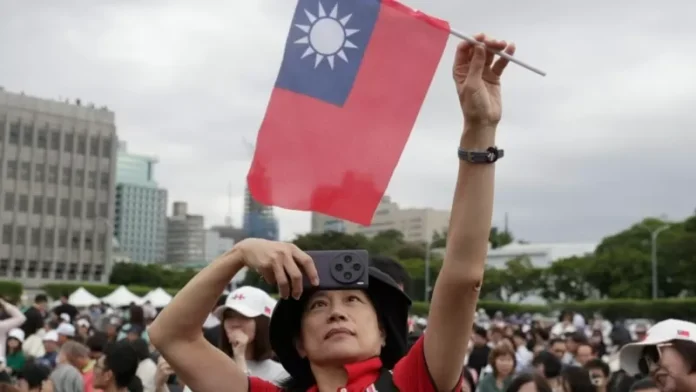The Biden administration has recently faced pressure from Beijing regarding its stance on Taiwan’s independence. However, the administration has made it clear that there is no change in its long-standing “one China” policy, which takes no stand on the issue.
In a statement to VOA, a senior administration official reiterated the U.S.’s position, stating, “We do not support Taiwan independence. We expect cross-Strait differences to be resolved by peaceful means, free from coercion. We oppose unilateral changes to the status quo by either side.” This reaffirmation of the “one China” policy comes after reports that Chinese President Xi Jinping asked President Joe Biden to use stronger language when discussing Taiwan’s independence.
During their last in-person meeting in November 2020, Xi reportedly urged Biden to state that the U.S. “opposes” instead of “does not support” Taiwan independence. However, the U.S. has maintained its consistent stance on the issue, acknowledging but not endorsing Beijing’s claim of sovereignty over Taiwan. The U.S. considers Taiwan’s status to be unsettled.
The Chinese Embassy in Washington has not responded to VOA’s request for comment on the matter. This push for stronger language from Beijing is not new and was also made by Chinese Foreign Minister Wang Yi during his meetings with U.S. counterparts.
According to Zack Cooper, a senior fellow at the American Enterprise Institute, the Chinese have been requesting this shift for some time and have even falsely asserted that the U.S. opposes Taiwanese independence. Cooper believes that the U.S. is unlikely to make this change without significant concessions from China and a longer-term conversation about de-escalating tensions in the Taiwan Strait.
Biden and Xi are expected to meet again next month in South America, possibly at the APEC meeting in Lima, Peru, and the G-20 summit in Rio de Janeiro, Brazil. This will likely be Biden’s final meeting with the Chinese leader before leaving office in January. Cooper predicts that it will be an opportunity for the two leaders to say goodbye and wrap up any loose ends, potentially including announcements on people-to-people issues.
Beijing is likely preparing for a change in U.S. administration, with the upcoming election between former President Donald Trump and Vice President Kamala Harris. Both candidates have promised to take a tough stance on China, with Trump even stating that he would impose high tariffs if China attempted to blockade Taiwan.
Tensions between China and Taiwan have escalated in recent years, with the latest incident occurring on Sunday when Taiwan’s defense ministry reported that Chinese warplanes and warships carried out a “combat patrol” near the island. This was in response to the U.S.’s approval of a $2 billion arms sale to Taiwan, which includes the first delivery of three National Advanced Surface-to-Air Missile Systems.
Despite not having formal diplomatic ties, the U.S. remains Taiwan’s strongest unofficial ally, and it is legally bound by the Taiwan Relations Act to provide the country with the means to defend itself. China has strongly condemned the arms sale, stating that it will take “resolute countermeasures” to defend its sovereignty, security, and territorial integrity.
In conclusion, the Biden administration has reiterated its commitment to its long-standing “one China” policy, which takes no stand on Taiwan’s independence. The U.S. stands firm in its belief that cross-Strait differences should be resolved peacefully and opposes any unilateral changes to the status quo. As the U.S. and China prepare for a potential shift in leadership, it is crucial for both sides to engage in constructive dialogue to de-escalate tensions and maintain stability in the region.

